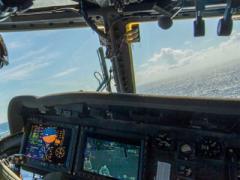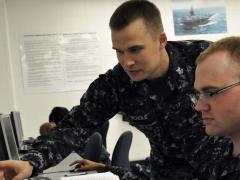Raytheon to Repair F/A-18 FLIR System
Raytheon Co., McKinney, Texas, is being awarded $56,401,986 for firm-fixed-price delivery order 7006 under a previously awarded basic ordering agreement (N0038
General Atomics Supports Italy’s MQ-9
General Atomics Aeronautical Systems Inc., Poway, California, has been awarded a not-to-exceed $11,752,919 undefinitized contract action for Italy MQ-9 Contracto
Lockheed to Integrate Electronic Warfare Into MH-60R/S
Lockheed Martin Rotary and Mission Systems, Owego, New York, is being awarded $19,996,526 for cost-plus-fixed-fee delivery order 4011 against a previously issued basic ordering agreement (N00019-14-G-0019) for the integration of advanced off-board electronic warfare into the MH-60R/S aircraft avionics operating program.

Two Companies Receive Situational Awareness Funds
Infoscitex Corp., Littleton, Massachusetts (FA8650-14-D-6500 P00008) and Ball Aerospace & Technologies Corp.
U.S. Navy Seeks Industry Input To Help Mold NGEN-R Contract

U.S. Army Modifies Counter Insurgency Situational Understanding Contract
Sotera Defense Solutions Inc., Herndon, Virginia, was awarded an $11,036,371 modification (P00007) to contract W911NF-16-C-0005 for a Defense Advanced Re
Amyx Inc. to Support Joint Improvised-Threat Defeat Organization
Amyx Inc.,* Reston, Virginia, has been awarded a $189,263,856 ceiling cost-plus-award-fee task order under the General Services Administration (GSA) OASIS Small B
Carlile Patchen & Murphy Hire Wernick
Carlile Patchen & Murphy LLP, Columbus, Ohio, hired Alan S.
Avid Technology Names Rosica President, Ennis Senior Vice President
Avid Technology, Burlington, Massachusetts, named Jeff Rosica president and promoted Peter Ennis to senior vice president, global services deliver
UltiSat Appoints Morris Senior Director of Government Services
UltiSat, Gaithersburg, Maryland, appointed Dan Morris as senior director of government services.